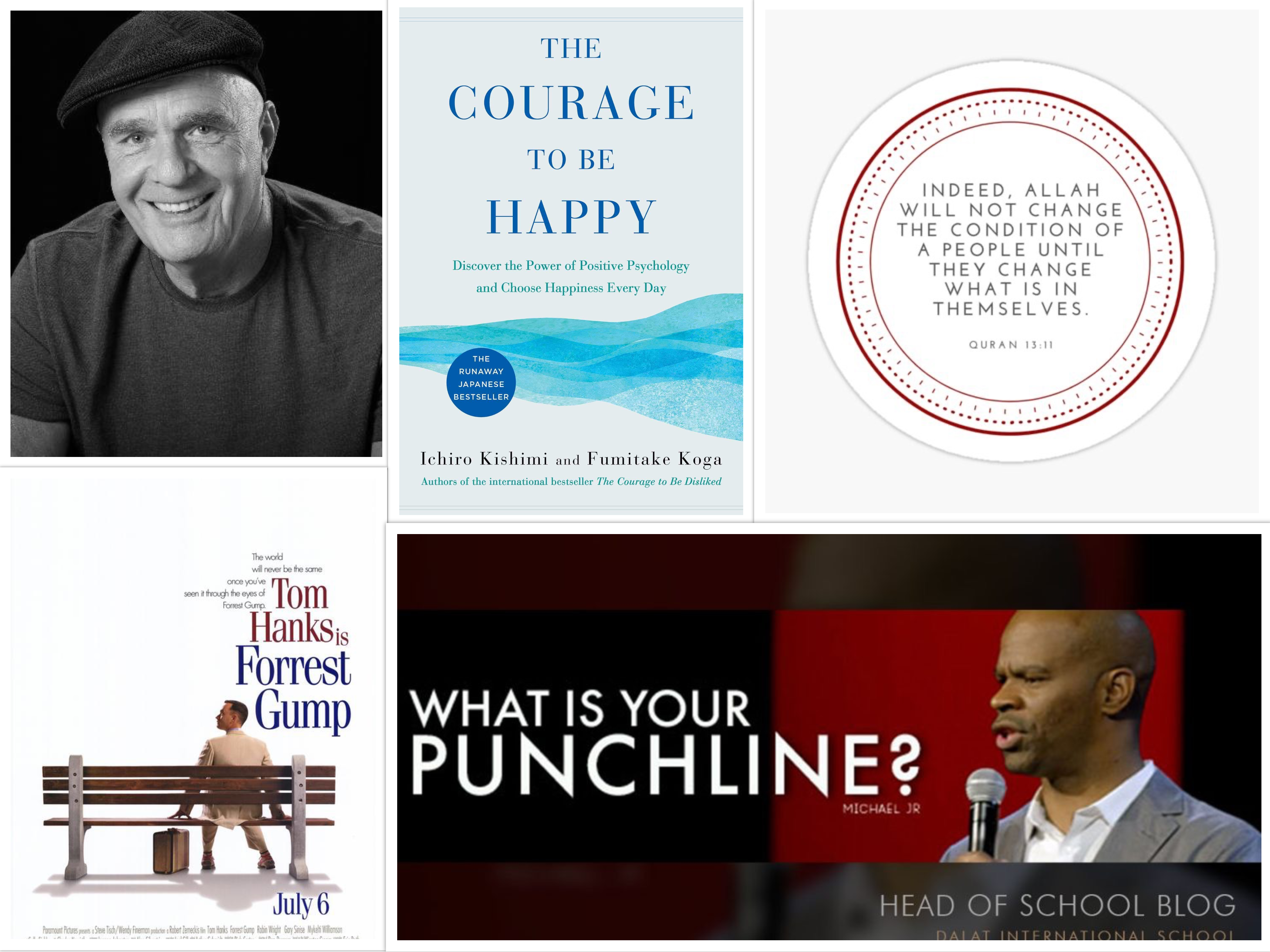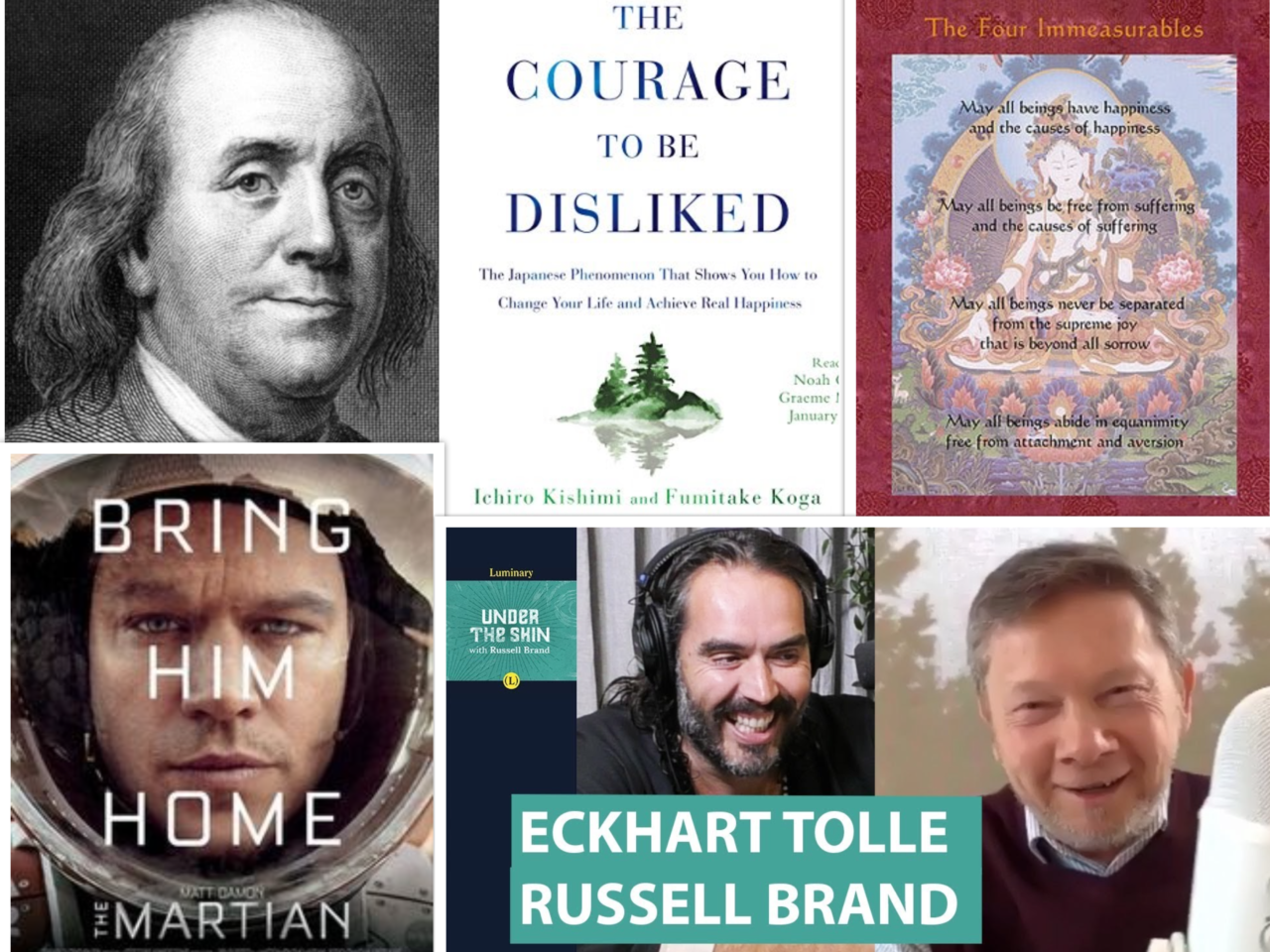Sunday Supplement #22 (October 10th, 2021)
Below is another Sunday Supplement with a quote worth sharing, a book worth reading, a movie worth watching, brainfood worth consuming, and a spiritual passage worth pondering.
I hope you take something away from these recommendations that enriches your week ahead!
Quote of the Week:
“If you change the way you look at things, the things you look at change.”
– Wayne Dyer
Book of the Week:
The Courage to Be Happy – Ichiro Kishimi & Fumitake Koga
In Sunday Supplement #7, I discussed Kishimi and Koga’s first collaboration, The Courage to Be Disliked. The first book explores the psychology of Alfred Adler using the Socratic method of dialogue between a philosopher and a youth. I remember reading it and feeling delighted by the ideas explored in the text.
The second book takes place a few years later after the youth went out into the world to teach the ideas he learned. The youth returns, angered at the philosopher because the concepts of Adler did not have real-world application. They sit down once more and go over everything but with the viewpoint of how each idea fits in everyday situations.
The Courage to Be Happy is a brilliant follow-up to the first novel. Much like the youth, I was not in the best mindset in the first stages of the book. It was interesting for me to go along the journey with the youth and rediscover some of the ideas I forgot and how they can be used in day-to-day processes.
The biggest realization for me came from their discussion around the triangle of responses many people have to setbacks. The first side is “woe is me—I can’t catch a break.” The second is “these people or this institution is setting me back.” The third side is one people often forget, and it’s a question—“What should I do now?”
I picked up many lessons from reading this book and highly encourage anyone interested to look at Kishimi and Koga’s work.
Movie of the Week:
Forrest Gump is an iconic American film that won six Oscars, including Best Picture, Best Actor in a Leading Role (Tom Hanks), Best Director, and Best Writing – Screenplay Based on Material Previously Produced or Published.
The movie covers significant periods of American history, from post-World War II to the post-Watergate, through the eyes of an Alabama man with an IQ of 75, whose only desire is to be reunited with his childhood sweetheart.
There are many things to appreciate about this film, but the characters are the best part for me. Forrest’s single-minded focus on whatever task is at hand without getting bored is uplifting and inspirational. Jenny’s intelligence and perception are evident throughout the movie, and it’s interesting to see her journey of running away from her past to settling down. Bubba’s determination and ambition for his shrimping boat is admirable and motivational but ultimately heartbreaking when it’s taken away. My favorite character, Lieutenant Dan, has an idea of how his life is supposed to be and finds it taken away from him, only to finally accept and be grateful for the life he’s given.
Forrest Gump is one of my favorite movies. It’s a go-to film I watch when I’m depressed and always reminds me of how acceptance, gratitude, and a positive attitude can drastically change how you experience life.
Brainfood of the Week:
Be The Punchline – Michael Jr.
Comedian Michael Jr. does more than just make people laugh. He brings joy through an interesting perspective to peoples’ lives. In addition to being a comedian, Michael Jr. is an author, podcaster, and actor. A significant portion of his career focuses on bringing laughter to uncommon places like prisons and homeless shelters. The purpose of his mission is captured in the quick video above.
I remember coming across this video years ago and coming away with the realization that a simple reframe can drastically change the energy behind an action. In the video, Michael Jr. discusses his “big break” in his career. It wasn’t an appearance on The Tonight Show with Jay Leno but a change in mindset he had before performing at a club.
The simple reframe is explained in the video and is profound in its impact. Michael Jr. goes on to explain how that new mindset affected his life and career. It’s a three-minute clip and packs a tremendous impact. Check it out!
Closing Spiritual Passage:
“Indeed, Allah will not change the condition of a people until they change what is in themselves.”
– Surah Ar-Ra’d 13:11
For me, this passage from the Quran follows up and expands on the Wayne Dyer quote from the beginning of the supplement. The Surah Ar-Ra’d verse delves deeper into the spiritual side of change. Dyer’s quote often reminds me of when you stand on top of a chair in a room you know well and how different can appear. Likewise, if you change how you view an event or a person, you can get a different perspective.
The passage above reminds me of how changing your internal point of view over time can make you a different person. When I’ve gone through a period of depression in the past, it felt like everything I saw was sad. Everything filtered through a negative perspective and stemmed from the disheartened place inside me. However, building positive habits and healing past traumas helped me change for the better.
Passages like these remind me that we have control over our actions and how we view the world. It is a power we should never relinquish.
Think of a past event that was negative, reframe it, and have a blessed week ahead!
Comments closed
